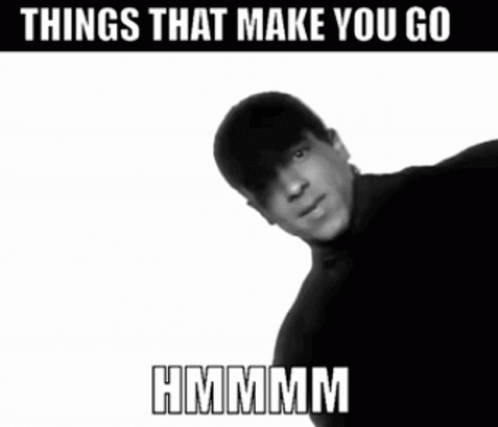Welcome to Slow Folk - a community for gentle hearts and rebellious creatives, thirsty for a slower life in a world obsessed with speed.
Welcome to the Unbusy Revolution.
This past season from summer into fall has been one of the fullest in recent memory.
I say full, not busy, because although it has been busy - for me busyness calls up feelings of franticness - haphazard, unfocused, needless noise.
This has not been that.
But a recent request to collaborate on a project got me thinking about the illusion of conflict between productivity and slowness.
These past few months have been the definition of productive in many ways.
We ( the royal ‘we’ - mostly NOT me ) built a new physical building that is now the home of our farm store. I have worked steadily making product from scratch to fill the shelves. A living record of time well-spent is piling up on every flat surface.
I began writing here, where in just a few short months, more than 400 of you have chosen to join me.
I launched a passion project, Slow Folk Co, and am now humbled to be coaching a select handful of remarkable business women from across North America.
Despite all that ‘productivity’, this summer and early fall have been some of the most mindfully, deliberately Slow of my entire 10+ years of intentional Slow Living.
I swam outside nearly every single day in July and August.
Not because I took an extended vacation, but because I decided that swimming would be my sanctuary in what I knew was going to be a very intense summer.
The pre-dawn laps, daily saunas and kibitz sessions with the elderly regulars kept me sane and grounded (more or less) as I took massive strides with my business.
I took time to literally ground myself each morning.
I spent hours each week, writing and sipping my coffee with my bare feet firmly planted on the earth, surrounded by birdsong.
I said NO (temporarily) to my vegetable garden.
This might seem like it should fall into the un-slow column, since many (myself included) would count gardening as a quintessential Slow pursuit.
But this summer, I knew that in light of my commitments and goals for my business, my beloved garden (and subsequent weeks upon weeks of canning and preserving) would fall squarely into the Hell No pile.
This is the beauty of radical Slow Living.
Recognizing that there is no ‘there’ there, we are free to release our grip on Slowness as a destination. That act of unclenching our hands gives us the grace of openness to what life has in store, instead of what we’re determined to wrestle from it.
Slowness isn’t a list of acceptable tasks or past-times. It isn’t something to ‘do’ or to cross of a list.
It is simply a set of tools to help us navigate the seasons of our life - the rough and the smooth, the luxuriously spacious and the deliciously full.
So when an email landed in my inbox for a project that would pair me with a productivity specialist as opposing experts, I thought hmmm . . .
What does it say about our culture that we view slowness and productivity as mutually exclusive?
And then I thought . . . No wonder we’re all burnt out.
What is this attraction, this obsession with either / or thinking? Is no one curious anymore about the nuance, about the gray spaces, the places in between?
The possibility that the answer might not be A or B but - both? Or neither? Or something in between or something else entirely?
What would be wrong with that?
Slowness and productivity are inextricably intertwined.
Rest, play, sleep, boredom, undemanding repetitive tasks that allow time and space for our subconscious to roam - these are all key to creativity, effectiveness and yes productivity.
The non-work part of work is a topic I’ve written about before in :
The Spaces In Between : Un / Productivity and the Creative Life
What if, instead of viewing the ebb as a negative, a space of downtime or unproductivity to be fixed or feel shame about . . .What if we viewed the ebb as a nourishing stillness necessary for creativity?
The difference is, Slowness takes a mindful, curious step back from our culture’s obsession with so-called efficiency and productivity as our only goal.
It wraps it arms around what our economic dogma writes off as externalities and tells the truth about them; they - and we - are all connected. Excluding something from our balance sheet does not write it out of existence.
Likewise, the fact that we choose not to count or assign value to ways of being does not mean that they are not inherently valuable.
Slowness recognizes these truths for what they are - necessary to be effective in our work and our lives as a whole.
The trouble is, Hustle Culture and the Cult of Busy don’t differentiate between movement and action.
What the heck do I mean by that?
Asking myself - Is this movement or is this action? - has been one of my most powerful beautiful questions when building my business.
We value movement over action when we buy into things like the myth of multitasking.
Our brains simply don’t work that way. What looks like multitasking is actually rapid task-switching, which comes with a massive cost to our focus and mental efficiency.
So we look and feel busy, and the extra mental effort required by task switching makes us FEEL like we are working hard (because we are) but actually, we aren’t working as effectively as we would be if we took the wise words of my father and ‘picked one, looked at the rest’ when it comes to choosing a task in any given moment.
I suspect, though, that many of us (myself included) easily become addicted to this frantic state.
In a hustle culture, or an office where looking busy is a matter of career survival, this frenetic state has become our norm, so much so that we forget to ask if we’ve actually accomplished anything of import in all the to and fro.
This is movement, not action.
Other activities that might fall into that column could be spending copious amounts of time on social media, even though hardly anyone even SEES your posts, let alone takes action on them.
It’s a lot of running around, but it doesn’t move the needle. Worse, it takes up valuable time from tasks that actually might move you forward.
Fretting over the perfect divider for your Substack post? Movement.
Writing the dang thing and pushing ‘send’? Action.
The idea that the Slow Movement is primarily about doing nothing is a fundamental misunderstanding of this potentially powerful way of being in the world.
Even proponents of Slow Living often fall into this trap.
Slow Living isn’t even about doing everything SLOW. ( Really. )
It is about finding the proper pace - for you. It is about rejecting speed as the best or even only way to frame our experience here in these fleshy bodies.
If you’re new to the concept of Slow Living, you can read more about what it is (and isn’t) here.
Just because our culture has taken things too far in our worship of work, productivity and efficiency, it doesn’t make these things inherently bad.
I don’t buy into the story that work ethic is some patriarchal holdover of Puritan ideals and therefore should jettison from our lives and culture.
Work is a necessary part of daily life, and not just in the context of late-stage capitalism. We ‘work’ when we prepare meals for ourselves and our families, care for our bodies and our abodes, parent our children.
Rather than chucking our work ethic to the wind, the Slow Movement provides us with the tools to build a relationship with our work - whether necessary or chosen - that is deeply nourishing and has the potential to build a real sense of meaning and purpose often missing from our lives.
Slowness embodies old-school ideas of effectiveness.
I read The Seven Habits of Highly Effective People many times before I had ever heard of the Slow Movement.
Steven Covey’s 7th habit - Sharpening The Saw - is deeply aligned with a Slow way of being, and is an idea we have largely abandoned in our current approach to work, career and personal development.
When it comes to work, YOU are your most valuable asset.
This is slowly starting to creep back into mainstream business discourse among thought leaders who have learned the hard way that focusing on productivity without rest results in disaster.
Sleep is a classic case. I often think about Tony Robbins chastising readers who say they don’t have time to build a business because they have a day job - Well, what are you doing between 9 pm and 2 am???! he demands.
Living on four hours sleep is not an effective path to productivity long-term. Approaching business from a Slow perspective has allowed me to keep long-term production-capacity at the forefront right alongside daily productivity.
If we neglect this truth, we effectively kill the goose that lays the golden eggs.
As someone who has lived the experience of waking up one day and realizing her goose was cooked . . . Let’s just say - 1 out of 10. Do not recommend.
So if you’re curious about Slow Living, but worry it might destroy your productivity, don’t.
Rather than looking at slowness and productivity as polar opposites, consider how they might support and uplift one another. This isn’t a zero-sum game.
What if you had a tool that helped you identify and confidently eliminate the useless busy-work that bogs you down and wears you out?
What if you knew what work actually mattered in the big picture, that would help move you towards your goals while also honouring your health, wellbeing and life outside of work?
What if your work wasn’t just productive, but also brought a sense of purpose and meaning to your life as a whole?
Kinda nice, right?
Stacey Langford is a writer, renegade farmer and slow business mentor living and working in Canada’s Fraser Valley. In 2010 Stacey ditched her cubicle in the city to turn her attention homeward, farm and help others craft a simple life, from scratch.
Are you ready to build a life - and a living - you actually love?
I help rebellious solopreneurs and creatives build businesses rooted in Slow Values. If you’re ready to step into your own Slow Life and finally claim your calling, let’s chat!













Exodus 34:21 Six days you shall labor, but on the seventh day you shall rest, even during the plowing season and harvest you must rest.
Moses, 1450-1410 BC
Absolutely love this. Creating space within a life otherwise enmeshed in the hustle culture is my project right now. Working out how to identify the doing that really matters versus the doing that is just for show. Figuring out how to live slowly, i.e. intentionally, without having to become a recluse.